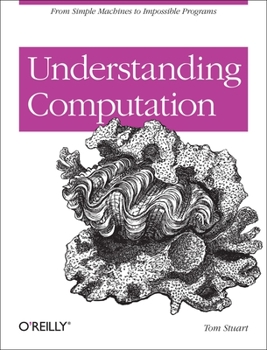Understanding Computation: From Simple Machines to Impossible Programs
Finally, you can learn computation theory and programming language design in an engaging, practical way. Understanding Computation explains theoretical computer science in a context you'll recognize, helping you appreciate why these ideas matter and how they can inform your day-to-day programming.
Rather than use mathematical notation or an unfamiliar academic programming language like Haskell or Lisp, this book uses Ruby in a reductionist manner to present formal semantics, automata theory, and functional programming with the lambda calculus. It's ideal for programmers versed in modern languages, with little or no formal training in computer science. Understand fundamental computing concepts, such as Turing completeness in languages Discover how programs use dynamic semantics to communicate ideas to machines Explore what a computer can do when reduced to its bare essentials Learn how universal Turing machines led to today's general-purpose computers Perform complex calculations, using simple languages and cellular automata Determine which programming language features are essential for computation Examine how halting and self-referencing make some computing problems unsolvable Analyze programs by using abstract interpretation and type systems





